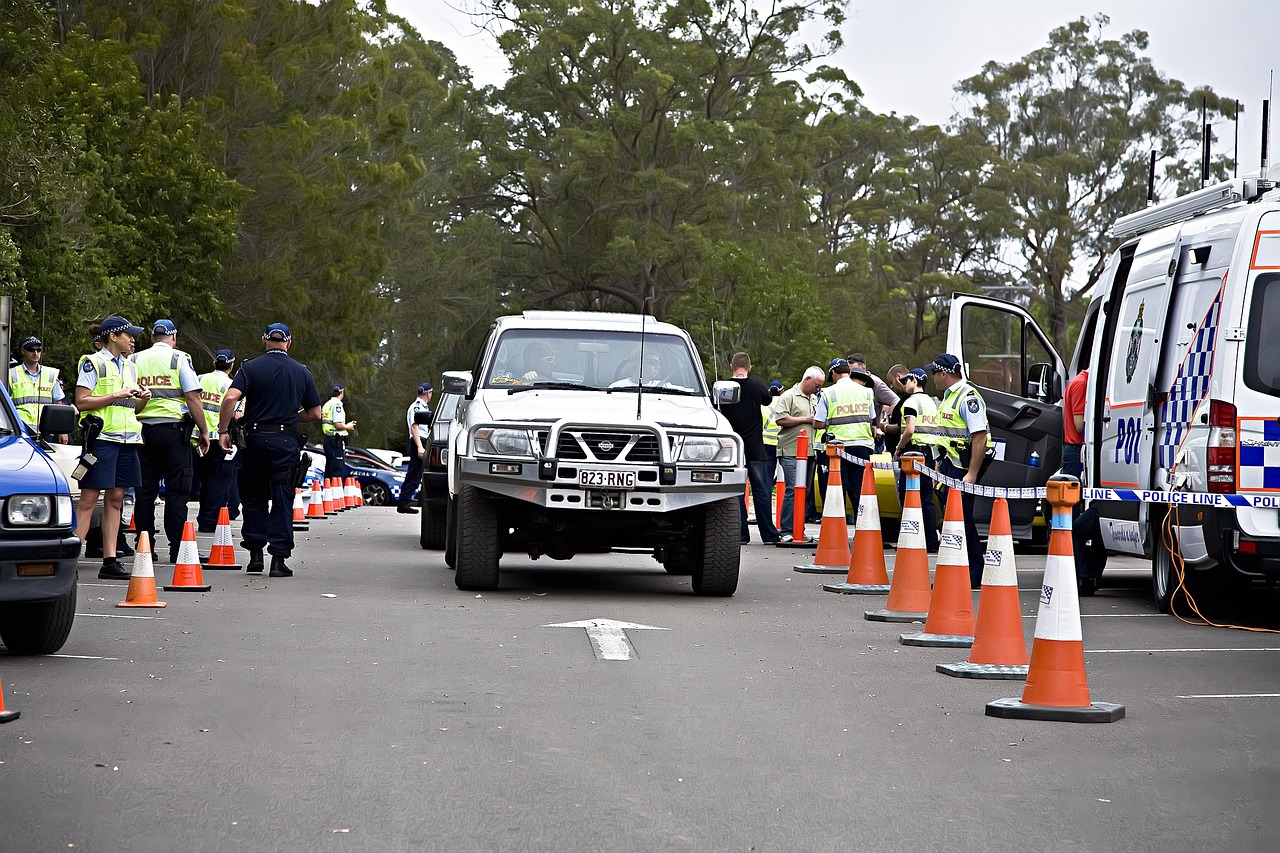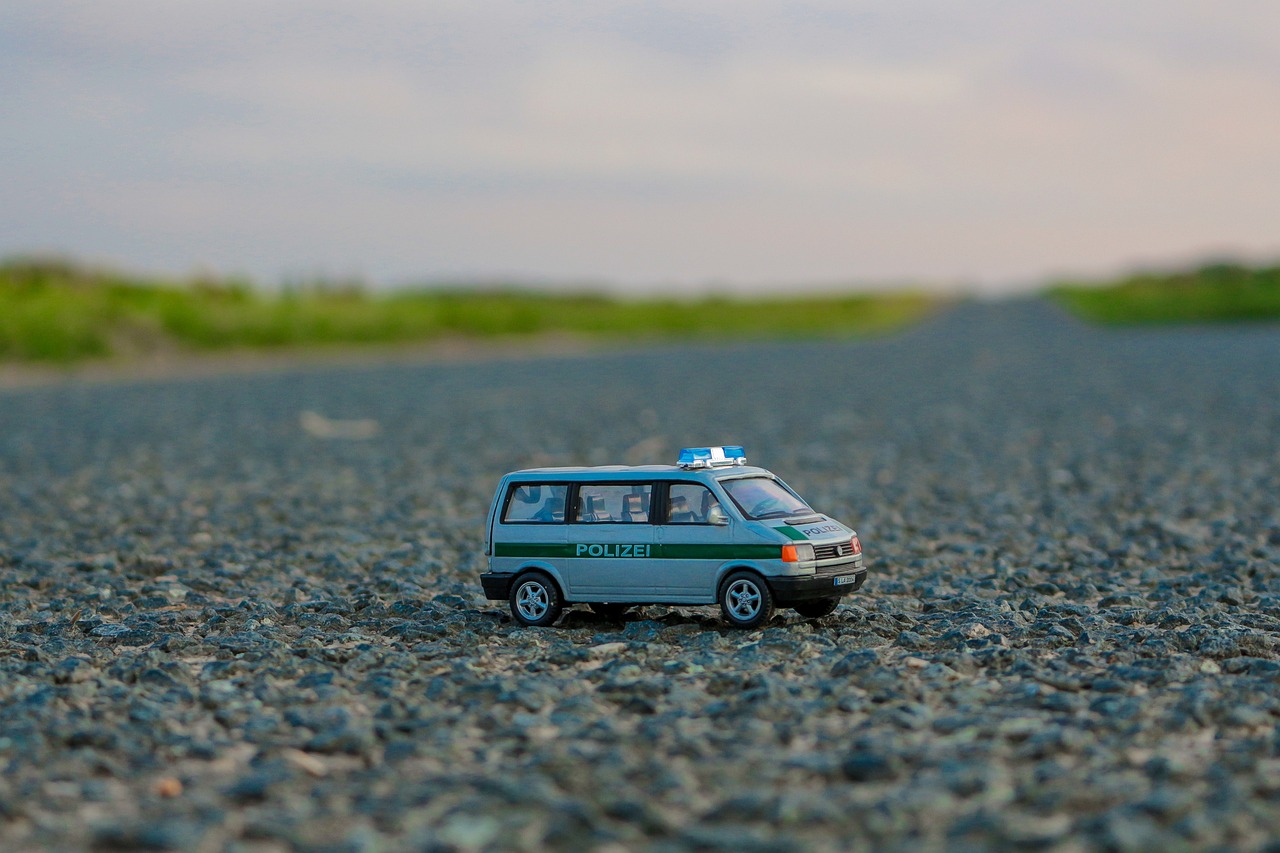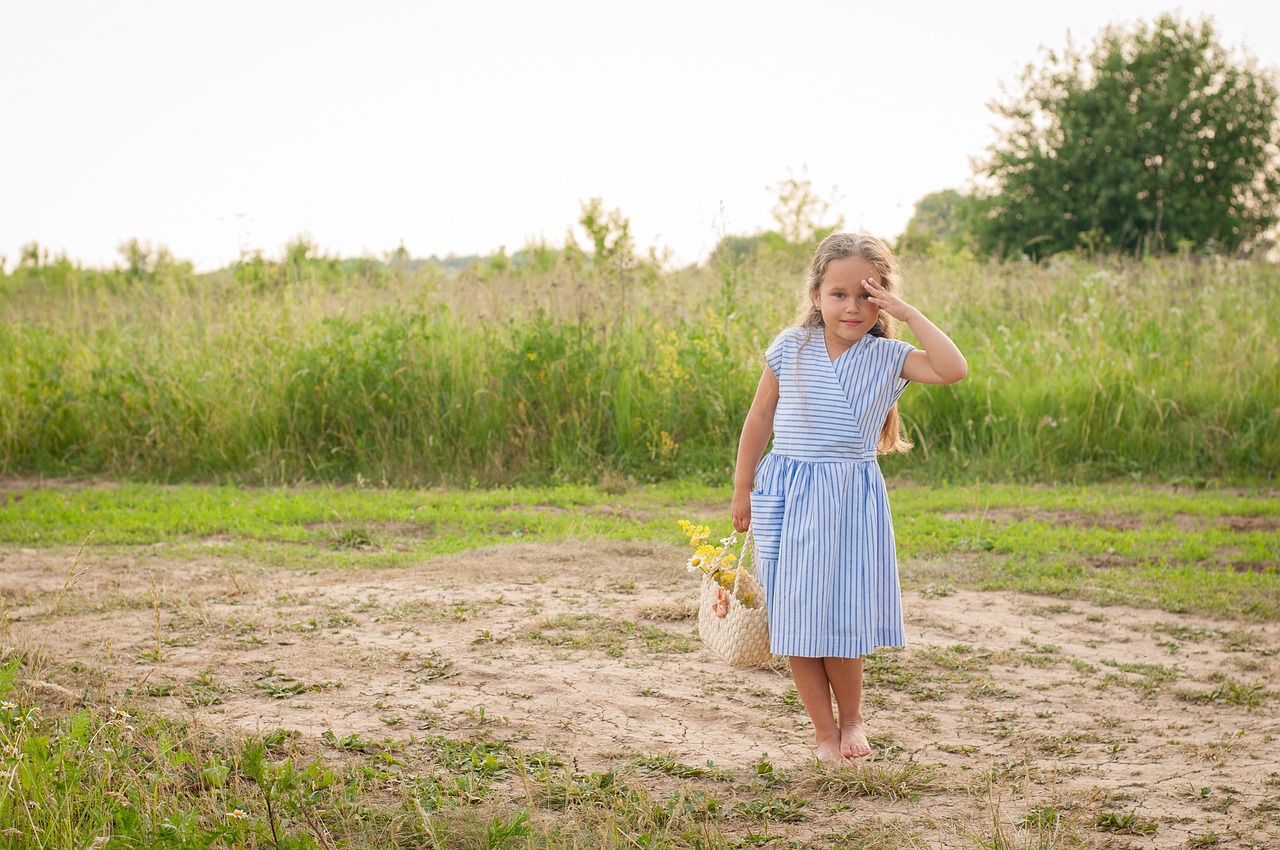This article explores how the beloved character Rocky from Paw Patrol can be used to teach children about recycling and sustainability, fostering environmental awareness from a young age.
Why Choose Paw Patrol for Sustainability Education?
Paw Patrol is a widely acclaimed children’s show that captivates young audiences with its engaging characters and adventurous storylines. This makes it an effective platform for imparting crucial lessons about recycling and environmental responsibility. By integrating fun and education, children can learn the importance of taking care of our planet while enjoying their favorite characters.
Understanding Recycling Through Rocky
Rocky, the recycling pup, embodies the principles of sustainability. His character provides relatable scenarios that help children grasp the importance of recycling in a fun and engaging way. Through his adventures, Rocky showcases how everyone can contribute to a healthier environment.
Rocky’s Recycling Adventures
Throughout various episodes, Rocky presents practical recycling tips. These adventures illustrate how recycling can be seamlessly integrated into everyday life, making it easier for children to understand and adopt sustainable practices.
- Identifying Recyclables: Rocky teaches kids how to identify recyclable materials. This foundational knowledge empowers children to recognize what can be recycled in their own homes and communities.
- Creative Reuse Ideas: Rocky demonstrates how to creatively reuse items that might otherwise be discarded. This encourages children to think innovatively about waste and promotes a culture of sustainability.
Lessons on Reducing Waste
In addition to recycling, Rocky emphasizes the importance of reducing waste. He shows children how small changes can lead to significant environmental benefits, reinforcing the idea of mindful consumption. By adopting simple practices, children can contribute to a more sustainable future.
Interactive Activities Inspired by Rocky
Engaging children through interactive activities can enhance their understanding of recycling. These activities can be inspired by Rocky’s adventures and provide hands-on learning experiences.
- Crafting with Recyclables: Children can create crafts using recyclable materials, inspired by Rocky’s resourcefulness. This not only fosters creativity but also reinforces the concept of reusing items before discarding them.
- Recycling Challenges: Organizing recycling challenges can motivate children to participate actively. These challenges can be themed around Rocky’s missions, making recycling a fun and competitive activity.
Incorporating Educational Resources
Utilizing various educational resources can supplement lessons about recycling with Rocky. Books, videos, and games can enhance children’s understanding and retention of sustainability concepts.
- Books Featuring Rocky and Recycling: There are numerous children’s books that feature Rocky and focus on recycling. These stories can serve as engaging tools to introduce sustainability concepts to young readers.
- Online Games and Activities: Interactive online games related to Rocky’s recycling missions can provide children with enjoyable ways to learn about sustainability. These resources can reinforce lessons through play.
Encouraging Family Participation
Involving the entire family in recycling efforts can create a supportive environment for children. Rocky’s lessons can be extended to family activities, fostering a collective commitment to sustainability.
- Family Recycling Projects: Families can undertake recycling projects together, inspired by Rocky’s adventures. This collaborative approach not only teaches children but also strengthens family bonds through shared goals.
- Community Involvement: Encouraging families to participate in community recycling events can enhance children’s understanding of their impact. Rocky’s lessons can inspire collective action toward a more sustainable community.
By leveraging the charm and relatability of Rocky from Paw Patrol, parents and educators can instill a sense of environmental responsibility in children. Through engaging stories, creative activities, and family involvement, children will not only learn about recycling but also be inspired to take action in their daily lives.

Why Choose Paw Patrol for Sustainability Education?
Paw Patrol is more than just an entertaining children’s show; it serves as a powerful educational tool for teaching young audiences about sustainability and environmental responsibility. The series features a diverse cast of characters, each with unique skills, but it is Rocky, the recycling pup, who stands out as a champion for eco-friendly practices. This engaging platform allows children to learn about the importance of recycling in a fun and relatable way.
Engaging Storylines and Characters
The charm of Paw Patrol lies in its captivating storylines and dynamic characters. Each episode presents new challenges that the pups must solve, often incorporating themes of teamwork, friendship, and responsibility. By embedding lessons about recycling and sustainability within these narratives, the show captures children’s attention while subtly teaching them essential environmental concepts.
Rocky: The Recycling Expert
Rocky serves as a role model for young viewers, showcasing how recycling can be integrated into daily life. Through his adventures, he teaches children to identify recyclable materials, emphasizing the significance of sorting waste correctly. This foundational knowledge empowers children to recognize what can be recycled in their homes and communities, fostering a sense of responsibility toward the environment.
- Identifying Recyclables: Rocky helps kids learn about common recyclable items, such as plastic bottles, paper, and cardboard. This knowledge is crucial for developing responsible waste management habits.
- Creative Reuse Ideas: By demonstrating how to creatively reuse items, Rocky encourages children to think innovatively about waste, promoting a culture of sustainability.
Lessons on Reducing Waste
In addition to recycling, Rocky emphasizes the importance of reducing waste. He illustrates how small changes, like using reusable bags or water bottles, can lead to significant environmental benefits. This reinforces the idea of mindful consumption, teaching children that every little effort counts toward protecting the planet.
Interactive Activities Inspired by Rocky
To further engage children, parents and educators can organize interactive activities inspired by Rocky’s adventures. These hands-on experiences provide practical learning opportunities that enhance understanding of recycling.
- Crafting with Recyclables: Children can create crafts using recyclable materials, fostering creativity while reinforcing the concept of reusing items before discarding them.
- Recycling Challenges: Organizing themed recycling challenges can motivate children to participate actively, making the learning process fun and competitive.
Incorporating Educational Resources
Utilizing various educational resources can supplement lessons about recycling with Rocky. Books, videos, and games can enhance children’s understanding and retention of sustainability concepts.
- Books Featuring Rocky and Recycling: Numerous children’s books focus on Rocky and recycling. These stories serve as engaging tools to introduce sustainability concepts to young readers.
- Online Games and Activities: Interactive online games related to Rocky’s recycling missions can provide children with enjoyable ways to learn about sustainability while reinforcing lessons through play.
Encouraging Family Participation
Involving the entire family in recycling efforts creates a supportive environment for children. Rocky’s lessons can be extended to family activities, fostering a collective commitment to sustainability.
- Family Recycling Projects: Families can undertake recycling projects together, inspired by Rocky’s adventures. This collaborative approach not only teaches children but also strengthens family bonds through shared goals.
- Community Involvement: Encouraging families to participate in community recycling events can enhance children’s understanding of their impact. Rocky’s lessons can inspire collective action toward a more sustainable community.
In summary, Paw Patrol, through the character of Rocky, provides a unique platform for teaching children about recycling and sustainability. By combining fun adventures with educational content, the show fosters a generation of environmentally conscious individuals who understand the importance of protecting our planet.

Understanding Recycling Through Rocky
Rocky, the recycling pup from Paw Patrol, serves as an inspiring figure for children learning about sustainability. His adventures not only entertain but also educate young audiences on the significance of recycling. By using relatable scenarios, Rocky helps children understand how they can contribute to a healthier planet.
One of the key aspects of Rocky’s character is his dedication to recycling. Through various episodes, he introduces children to the concept of sustainability in a manner that is both engaging and easy to comprehend. Rocky’s enthusiasm for recycling encourages kids to think critically about their own waste and the environment.
In several episodes, Rocky embarks on exciting missions that highlight the importance of recycling. For example, he often finds creative solutions to problems by repurposing materials that others might consider trash. This not only showcases his resourcefulness but also teaches children how they can integrate recycling into their daily lives. By seeing Rocky transform discarded items into useful products, children learn that recycling is not just about throwing things in a bin; it’s about finding new life in old items.
Rocky plays a crucial role in helping children identify what can be recycled. He often conducts fun and interactive lessons that demonstrate how to distinguish between recyclable materials and regular waste. For instance, he might show a scene where he sorts through a pile of items, explaining which ones can go in the recycling bin. This foundational knowledge empowers children to recognize recyclable materials in their own homes and communities, fostering a sense of responsibility.
In addition to recycling, Rocky promotes the idea of creative reuse. He encourages children to think outside the box and come up with innovative ways to repurpose items before discarding them. For example, he might suggest turning an old cereal box into a storage container or using plastic bottles to create a bird feeder. These activities not only stimulate creativity but also instill a culture of sustainability in young minds.
Rocky emphasizes that recycling is just one part of a larger sustainability puzzle. He teaches children about the importance of reducing waste and making mindful consumption choices. Through his adventures, he demonstrates how small changes, like using reusable bags or water bottles, can significantly benefit the environment. This holistic approach encourages children to adopt a lifestyle that prioritizes sustainability.
To further engage children in the principles of recycling, various interactive activities can be inspired by Rocky’s adventures. These hands-on experiences can enhance their understanding and retention of sustainability concepts.
- Children can create crafts using recyclable materials, such as making art from old magazines or building structures from cardboard boxes. This not only fosters creativity but reinforces the concept of reusing items before discarding them.
- Rocky’s resourcefulness can inspire a crafting session where kids make their own toys or decorations from items that would normally be thrown away.
Organizing recycling challenges can motivate children to participate actively in sustainability efforts. These challenges can be themed around Rocky’s missions, making recycling a fun and competitive activity. For example, children could compete to see who can collect the most recyclable materials in a week, encouraging teamwork and community spirit.
Utilizing various educational resources can supplement lessons about recycling with Rocky. Books, videos, and games can enhance children’s understanding and retention of sustainability concepts.
Numerous children’s books feature Rocky and focus on recycling. These stories serve as engaging tools to introduce sustainability concepts to young readers. They can spark discussions about the importance of taking care of the environment while also being entertaining.
Interactive online games related to Rocky’s recycling missions provide children with enjoyable ways to learn about sustainability. These resources reinforce lessons through play, making the learning process fun and engaging.
Involving the entire family in recycling efforts creates a supportive environment for children. Rocky’s lessons can be extended to family activities, fostering a collective commitment to sustainability.
Families can undertake recycling projects together, inspired by Rocky’s adventures. This collaborative approach not only teaches children but also strengthens family bonds through shared goals.
Encouraging families to participate in community recycling events can enhance children’s understanding of their impact. Rocky’s lessons can inspire collective action toward a more sustainable community, demonstrating that everyone can play a part in protecting the environment.
Rocky’s Recycling Adventures
Rocky, the resourceful recycling pup from Paw Patrol, embarks on exciting adventures that teach children the vital importance of recycling and sustainability. His character serves as a wonderful vehicle for imparting practical knowledge about how to integrate eco-friendly practices into daily life. Through engaging storylines, Rocky illustrates that recycling isn’t just a chore; it’s a fun and rewarding activity that everyone can participate in.
Throughout various episodes, Rocky showcases practical recycling tips that resonate with young viewers. For instance, he often transforms everyday situations into lessons about how to recycle effectively. By showing children the importance of reducing waste and reusing materials, Rocky makes sustainability accessible and enjoyable. His adventures encourage kids to see recycling not just as a responsibility, but as an opportunity for creativity and innovation.
- Identifying Recyclables: One of Rocky’s key lessons involves teaching children to identify recyclable materials. By explaining what items can be recycled—like paper, plastic, and glass—he empowers them to recognize these materials in their own homes. This foundational knowledge is crucial for instilling a sense of environmental responsibility.
- Creative Reuse Ideas: Rocky often demonstrates how to creatively reuse items that might otherwise end up in the trash. For example, he might turn an old box into a toy or a glass jar into a decorative planter. This not only promotes sustainability but also encourages children to think outside the box and come up with their own reuse ideas.
Rocky’s adventures also delve into the concept of reducing waste. He emphasizes that small changes, such as using reusable bags or water bottles, can lead to significant environmental benefits. By showcasing these simple yet impactful actions, Rocky reinforces the idea that everyone can contribute to a healthier planet.
Moreover, Rocky’s character provides a platform for interactive learning. Children can engage in activities inspired by his adventures, such as crafting with recyclables or participating in recycling challenges. These hands-on experiences not only make learning fun but also deepen their understanding of sustainability.
To further enhance their learning experience, children can engage in interactive activities that mirror Rocky’s recycling missions. For instance, they can:
- Crafting with Recyclables: Using materials that would typically be thrown away, children can create art projects inspired by Rocky’s resourcefulness. This not only fosters their creativity but also reinforces the concept of reusing items before discarding them.
- Recycling Challenges: Organizing themed recycling challenges can motivate children to actively participate in sustainability efforts. By turning recycling into a game, children are more likely to engage and adopt these practices in their daily lives.
Incorporating educational resources can further enrich children’s understanding of recycling. Books featuring Rocky and his adventures provide engaging stories that introduce sustainability concepts. Additionally, online games related to Rocky’s missions offer interactive ways for children to learn while having fun.
By involving families in these activities, Rocky’s lessons can extend beyond individual learning. Family recycling projects inspired by his adventures can create a supportive environment for children, fostering a collective commitment to sustainability. Community involvement, such as participating in local recycling events, can also enhance children’s understanding of their impact on the environment.
In summary, Rocky’s recycling adventures serve as a powerful tool for educating children about sustainability. By presenting recycling in a fun and engaging manner, he inspires young viewers to adopt eco-friendly practices and become active participants in protecting our planet.
Identifying Recyclables
In today’s world, understanding how to properly recycle is more important than ever. With the help of Rocky, the resourceful recycling pup from Paw Patrol, children can learn the essential skill of identifying recyclable materials. This knowledge not only empowers them but also fosters a sense of responsibility towards the environment.
Rocky’s adventures provide a fun and engaging way for children to learn what items can be recycled. By teaching kids to recognize recyclable materials, Rocky helps them understand how their actions can positively impact their homes and communities. Here are some key points that can help children identify recyclables:
- Common Recyclable Materials: Items such as paper, cardboard, glass bottles, aluminum cans, and certain plastics can often be recycled. Rocky emphasizes the importance of checking local recycling guidelines, as these can vary by location.
- Understanding Symbols: Children can learn to recognize recycling symbols on products. For instance, the chasing arrows symbol indicates that an item is recyclable. Teaching kids to look for these symbols can make it easier for them to sort their waste correctly.
- Separation of Materials: Rocky encourages kids to separate recyclables from regular trash. This simple act can significantly increase the amount of material that gets recycled, reducing waste in landfills.
By instilling these practices early on, Rocky equips children with the tools they need to make informed decisions about waste management.
Understanding how to identify recyclables is just the beginning. Rocky’s lessons go beyond mere identification; they promote a culture of sustainability. Here’s why recycling education is crucial:
- Environmental Awareness: Teaching kids about recycling helps them understand the consequences of waste and the importance of protecting the environment.
- Community Involvement: When children learn to recycle, they often encourage their families and friends to do the same, creating a ripple effect in their communities.
- Empowerment: Knowledge is power. By knowing what can be recycled, children feel empowered to take action, making a tangible difference in their surroundings.
To enhance the learning process, parents and educators can create interactive experiences that reinforce Rocky’s lessons. Here are a few ideas:
- Recycling Games: Create fun games where children can sort items into recyclable and non-recyclable categories. This hands-on approach makes learning enjoyable.
- Field Trips: Organizing trips to local recycling centers can provide children with a firsthand look at how recycling works, deepening their understanding.
- Art Projects: Encourage kids to use recyclable materials for art projects. This not only fosters creativity but also emphasizes the concept of reusing materials.
These activities can help solidify the knowledge children gain from Rocky’s adventures, making recycling a fun and integral part of their lives.
As children learn to identify recyclables, it’s essential to encourage them to adopt these practices as lifelong habits. Here are some tips for parents and educators:
- Lead by Example: Show children how you recycle at home. Your actions will inspire them to follow suit.
- Discuss the Impact: Talk about the positive effects of recycling on the environment. Understanding the bigger picture can motivate children to stay committed to recycling.
- Celebrate Success: Acknowledge and celebrate when children successfully recycle items. Positive reinforcement will encourage them to continue.
By integrating these lessons into daily life, Rocky helps children not only identify recyclables but also develop a lifelong commitment to sustainability.
Creative Reuse Ideas
are essential in teaching children the significance of sustainability. By encouraging kids to think outside the box, we can transform ordinary waste into extraordinary treasures. This not only minimizes the amount of waste sent to landfills but also fosters a sense of creativity and innovation.
Rocky, the recycling pup from Paw Patrol, serves as an excellent role model for children in this regard. His adventures show how everyday items can be repurposed in fun and imaginative ways. Here are some engaging ideas to inspire children to creatively reuse items that might otherwise be discarded:
- Plastic Bottle Planters: Empty plastic bottles can be transformed into beautiful planters. Simply cut them in half, fill them with soil, and plant seeds or small flowers. This teaches children about gardening while also reusing materials.
- Cardboard Box Forts: Instead of throwing away cardboard boxes, children can create forts or playhouses. This activity not only sparks creativity but also promotes teamwork when they build together.
- Egg Carton Crafts: Egg cartons can be turned into a variety of crafts, such as caterpillars, flowers, or even bird feeders. This encourages children to see potential in items they might otherwise overlook.
- Old T-Shirts into Tote Bags: Transforming old t-shirts into reusable tote bags is a fun sewing project. Children can personalize their bags with fabric markers, promoting both creativity and sustainability.
- Jar Storage Solutions: Glass jars can be repurposed as storage containers for craft supplies, snacks, or even as decorative items. This teaches kids about organization while reusing materials.
Rocky’s emphasis on creative reuse not only makes sustainability fun but also instills important values in children. By participating in these activities, kids learn to appreciate the lifecycle of products and the impact of their choices on the environment.
Moreover, engaging in creative reuse can lead to meaningful family time. Parents can join their children in these projects, reinforcing the idea that sustainability is a shared responsibility. Collaborative projects can also enhance communication and bonding within families.
Incorporating community events focused on creative reuse can further amplify these lessons. Organizing workshops where families can come together to create new items from old ones fosters a community spirit and encourages collective action towards sustainability. Such events can include crafting sessions, recycling drives, or even competitions that challenge families to come up with the most innovative reuse ideas.
Ultimately, Rocky’s lessons on creative reuse serve as a foundation for instilling a culture of sustainability in young minds. By making recycling and repurposing a fun and engaging part of their lives, children can grow into environmentally conscious adults, ready to tackle the challenges of waste management and sustainability.
In conclusion, the journey of sustainability begins with small steps, and creative reuse is a vital part of this process. Through the example set by Rocky and engaging activities, children can learn that every item has the potential for a second life. By fostering creativity and resourcefulness, we can inspire the next generation to become champions of the environment.
Lessons on Reducing Waste
In today’s world, the need for sustainability and environmental consciousness is more pressing than ever. Children, as the future stewards of our planet, must learn the importance of not only recycling but also reducing waste. Rocky, the resourceful recycling pup from Paw Patrol, serves as an excellent role model for teaching these vital lessons.
Rocky emphasizes that reducing waste is just as crucial as recycling. He teaches children that small, everyday actions can lead to significant environmental benefits. By making mindful choices, they can contribute to a healthier planet. Here are some practical lessons Rocky shares with children:
- Mindful Consumption: Rocky encourages kids to think before they buy. By asking questions like, “Do I really need this?” or “Can I find a better alternative?”, children learn to make informed decisions that cut down on unnecessary waste.
- Choosing Reusable Items: Rocky shows how opting for reusable bags, water bottles, and containers can drastically reduce the amount of single-use plastic that ends up in landfills and oceans. This simple switch can have a lasting impact on the environment.
- Creative Problem Solving: Rocky often demonstrates how to creatively repurpose items instead of throwing them away. For instance, turning an old t-shirt into a reusable shopping bag not only reduces waste but also sparks creativity.
- Composting: Rocky introduces the idea of composting organic waste. By composting food scraps and yard waste, families can significantly reduce the volume of waste they send to landfills, while also creating nutrient-rich soil for gardening.
- Sharing and Donating: Rocky highlights the importance of sharing items with others or donating them to those in need. This not only helps reduce waste but also fosters a sense of community and generosity among children.
Through these lessons, Rocky instills a sense of responsibility in children, encouraging them to think critically about their consumption habits. By understanding the impact of their choices, kids can actively participate in reducing waste.
To further cement these concepts, engaging activities can help children put Rocky’s lessons into practice:
- Waste Audit: Families can conduct a waste audit to identify what items are being thrown away most frequently. This exercise helps children visualize their waste and encourages them to find ways to reduce it.
- DIY Projects: Organizing DIY workshops where children can create new items from old materials can be a fun way to promote reusing and reducing waste. For instance, making bird feeders from plastic bottles can be both educational and enjoyable.
- Community Clean-Up Days: Participating in local clean-up events can help children see the direct impact of waste reduction efforts. It fosters teamwork and a sense of accomplishment while making a positive difference in their community.
By incorporating these activities into their lives, children not only learn valuable lessons from Rocky but also become active participants in the movement towards sustainability.
Involving the entire family in waste reduction efforts can amplify the impact of Rocky’s teachings. When families work together, they can create a supportive environment that encourages sustainable practices:
- Setting Goals: Families can set collective goals, such as reducing waste by a certain percentage over a month. This not only promotes accountability but also fosters a team spirit.
- Regular Discussions: Making time for regular discussions about waste reduction can help keep everyone engaged and informed about new strategies and ideas.
By emphasizing the importance of reducing waste, Rocky not only teaches children how to be responsible consumers but also inspires them to take action. The lessons learned from this beloved character can have lasting effects, encouraging a generation of environmentally conscious individuals.

Interactive Activities Inspired by Rocky
can significantly enhance children’s understanding of recycling and sustainability. By incorporating engaging, hands-on experiences related to Rocky’s adventures, children can learn valuable lessons while having fun. These activities not only promote environmental awareness but also foster creativity and teamwork among young learners.
One effective way to engage children is through crafting with recyclables. This activity encourages kids to gather materials that would typically be thrown away, such as plastic bottles, cardboard, and old newspapers. Under guidance, they can transform these items into art projects, like making bird feeders or decorative planters. This hands-on experience reinforces the idea of reusing materials, showing kids that waste can be turned into something beautiful and useful.
Another exciting option is to organize recycling challenges. These can be themed around Rocky’s missions, where children compete to see who can collect the most recyclable materials within a set timeframe. Not only does this foster a spirit of friendly competition, but it also encourages teamwork and collaboration as kids work together to achieve a common goal. Offering small rewards or recognition for their efforts can further motivate participation and make recycling feel rewarding.
Additionally, interactive games can serve as a fun way to teach children about recycling. For instance, creating a scavenger hunt where kids must find and identify recyclable items in their homes or local environment can be both educational and entertaining. This activity not only reinforces their knowledge of what can be recycled but also encourages them to be observant and engaged with their surroundings.
To further enhance the learning experience, consider incorporating storytelling sessions featuring Rocky. Reading books that highlight Rocky’s adventures in recycling can captivate children’s imaginations while imparting crucial lessons about sustainability. After the story, discussions can be held to explore the concepts presented, allowing children to share their thoughts and insights.
Moreover, community clean-up days can be organized, inspired by Rocky’s dedication to keeping Adventure Bay clean. Families can come together to collect litter and learn about the importance of maintaining a clean environment. This not only instills a sense of responsibility but also strengthens community bonds as participants work towards a common goal.
Ultimately, the goal of these interactive activities is to make learning about recycling enjoyable and impactful. By using Rocky as a source of inspiration, children can develop a deeper understanding of sustainability principles. They will learn that their actions matter and that they can contribute positively to the environment.
In summary, provide valuable opportunities for children to engage with the concept of recycling. From crafting with recyclables to community involvement, these activities promote creativity, teamwork, and a sense of responsibility towards the environment. By making sustainability fun and relatable, we can empower the next generation to become mindful stewards of our planet.
Crafting with Recyclables
Crafting with recyclable materials is a fun and educational activity that not only sparks creativity in children but also instills a sense of responsibility towards the environment. Inspired by Rocky from Paw Patrol, kids can engage in crafting projects that transform everyday waste into imaginative creations. This hands-on approach not only nurtures their artistic skills but also reinforces the important concept of reusing items before they are discarded.
Using recyclable materials such as cardboard boxes, plastic bottles, and old newspapers, children can create a variety of crafts. For instance, a simple cardboard box can be turned into a playhouse or a robot with just a few additional materials like paint and markers. This transformation process encourages kids to think outside the box, literally and figuratively, as they learn to see the potential in what might otherwise be considered trash.
Moreover, crafting with recyclables promotes problem-solving skills. As children work on their projects, they often encounter challenges that require innovative solutions. For example, if they want to build a bird feeder from a plastic bottle, they must figure out how to cut the bottle safely and securely attach it to a tree branch. This process not only enhances their creativity but also teaches them the value of persistence and resourcefulness.
To further enrich this crafting experience, parents and educators can introduce themed projects that align with Rocky’s adventures. For example, a “Paw Patrol Rescue Mission” could involve building vehicles or rescue boats from recycled materials. By incorporating storytelling into crafting, children can immerse themselves in the world of Rocky while learning about the significance of recycling and sustainability.
Here are some engaging ideas for crafting with recyclables:
- Recycled Art Collage: Use old magazines, newspapers, and scrap paper to create colorful collages that tell a story or represent a theme.
- DIY Musical Instruments: Create shakers from plastic bottles filled with rice or beans, or make drums from tin cans.
- Garden Decor: Transform old tin cans into flower pots or birdhouses, enhancing outdoor spaces while promoting recycling.
- Costumes and Dress-Up: Encourage creativity by crafting costumes from old clothes, paper, and other recyclables for imaginative play.
Incorporating these activities into regular playtime not only makes recycling fun but also helps children understand the impact of their choices on the environment. As they engage in these creative projects, they learn that every small effort counts towards a larger goal of sustainability.
By embracing Rocky’s resourcefulness, children can develop a lifelong habit of reusing and recycling. This not only fosters creativity but also cultivates a sense of environmental stewardship. As they grow, these lessons will help them become more conscious consumers, understanding the importance of reducing waste and protecting our planet.
Ultimately, crafting with recyclables is more than just a fun activity; it’s a powerful way to educate children about sustainability while allowing them to express their creativity. By making these connections, children can develop a deeper appreciation for the environment and their role in preserving it for future generations.
Recycling Challenges
Organizing can be an effective way to motivate children to engage actively in sustainability efforts. By creating a fun and competitive atmosphere, these challenges can encourage kids to embrace recycling as part of their daily routine. Themed around Rocky’s missions from Paw Patrol, these challenges can transform the often mundane task of recycling into an exciting adventure.
- Team-Based Competitions: Children can be divided into teams, each representing a Paw Patrol character. By competing to collect the most recyclable materials, kids learn teamwork while fostering a sense of responsibility towards the environment.
- Creative Recycling Projects: Challenges can include crafting projects where children use recyclable materials to create something new. This encourages creativity and shows them the potential of reusing items instead of discarding them.
- Recycling Education Quizzes: Incorporating quizzes about what materials can be recycled and why recycling is important can enhance their knowledge. This can be a fun way to reinforce learning while making it competitive.
Another engaging idea is to host a Recycling Scavenger Hunt. Children can be given a list of recyclable items to find around their homes or neighborhoods. This not only makes recycling interactive but also helps them understand what items can be recycled. To add an educational twist, you can include facts about each item’s impact on the environment when recycled versus when thrown away.
Incentives for Participation
To further motivate children, consider offering rewards for participation. These could range from small prizes like stickers or badges to larger incentives such as a day out to a local recycling center or a fun educational workshop. Recognizing their efforts can significantly boost their enthusiasm for recycling.
- Certificates of Achievement: Every participant can receive a certificate for their efforts, fostering a sense of accomplishment.
- Community Recognition: Highlighting the efforts of children in community newsletters or social media can inspire others to join in.
Establishing a Routine
Incorporating these challenges into a regular schedule can help children develop a lasting habit of recycling. By making recycling a part of their routine, they learn to see it as a normal and important activity. Families can set aside specific days for recycling challenges, allowing children to look forward to these events as fun and educational experiences.
Additionally, community involvement can amplify the impact of these challenges. Schools and local organizations can collaborate to create larger events that engage more children and families. This not only enhances participation but also fosters a sense of community responsibility towards environmental sustainability.
Promoting Long-Term Engagement
To ensure that the excitement around recycling challenges does not fade, it is essential to keep the activities fresh and varied. Regularly introducing new themes, challenges, or educational components can sustain interest and engagement. For instance, a “Rocky’s Green Week” can be organized annually, featuring various recycling challenges, workshops, and community clean-up events.
In conclusion, organizing recycling challenges themed around Rocky’s missions can effectively motivate children to participate actively in sustainability efforts. By making recycling fun, competitive, and educational, we can foster a new generation that values and practices environmental responsibility. With the right approach, these challenges can instill lifelong habits that benefit both children and the planet.

Incorporating Educational Resources
into lessons about recycling with Rocky can significantly enhance children’s understanding of sustainability. By utilizing a variety of materials, educators and parents can create a multifaceted learning experience that captivates young minds and fosters a deeper appreciation for the environment.
Books, videos, and interactive games are just a few examples of the educational resources that can complement Rocky’s adventures. These tools not only make learning fun but also reinforce the concepts of recycling and sustainability in a way that resonates with children.
There is an array of children’s books that feature Rocky and focus on recycling themes. These stories often present engaging narratives that highlight the importance of recycling in a relatable manner. For instance, books that depict Rocky tackling recycling challenges can encourage kids to think critically about waste and the environment. Reading these stories can also spark discussions about how children can apply these lessons in their daily lives.
In addition to books, educational videos can be a powerful resource. Animated episodes featuring Rocky often include practical recycling tips that children can easily grasp. By watching Rocky in action, kids can see the positive impact of recycling and learn how to identify recyclables in their own homes. These visual aids can enhance comprehension and retention of sustainability concepts, making the learning process more effective.
Interactive online games related to Rocky’s recycling missions provide a fun and engaging way for children to learn about sustainability. These games often incorporate challenges that require players to sort recyclables, complete recycling tasks, or even participate in virtual clean-up missions. Such interactive experiences not only entertain but also reinforce the lessons learned from Rocky’s adventures, allowing children to apply their knowledge in a playful context.
Incorporating hands-on activities into lessons can significantly enhance engagement. For example, children can participate in crafting sessions where they use recyclable materials to create art projects. This not only fosters creativity but also instills the value of reusing items before discarding them. By engaging in practical activities, children can see firsthand how recycling works and understand its importance in reducing waste.
Engaging with community programs can further enrich children’s education about recycling. Many communities offer events such as recycling drives or clean-up days where families can participate together. These events provide practical experience and allow children to witness the collective effort toward sustainability. Rocky’s lessons can inspire families to take part in these initiatives, reinforcing the idea that everyone has a role in protecting the environment.
Technology plays a crucial role in modern education, and incorporating apps or websites dedicated to recycling can enhance children’s learning experiences. Many educational platforms offer interactive lessons and quizzes that can be tailored to reinforce the concepts introduced through Rocky’s character. By integrating technology, educators can create a dynamic learning environment that caters to various learning styles.
In summary, utilizing a diverse range of educational resources can greatly enrich lessons about recycling with Rocky. By incorporating books, videos, hands-on activities, and community involvement, educators and parents can create a comprehensive and engaging learning experience. These resources not only make sustainability concepts more accessible but also empower children to take action in their own lives, fostering a generation of environmentally conscious individuals.
Books Featuring Rocky and Recycling
are an excellent way to introduce young readers to the vital concepts of sustainability and environmental responsibility. These stories not only entertain but also educate children about the importance of recycling through the adventures of Rocky, the resourceful pup from Paw Patrol.
Many children’s books creatively incorporate Rocky’s character, making the learning process both fun and relatable. By following Rocky on his recycling missions, children can learn essential lessons about how to care for the planet. Here are some popular titles that effectively convey these messages:
- Rocky to the Rescue – In this story, Rocky embarks on a mission to clean up Adventure Bay, teaching children about sorting recyclables and the importance of teamwork in environmental efforts.
- Rocky’s Recycling Adventure – This book highlights Rocky’s journey as he discovers various recyclable materials. Kids learn to identify what can be recycled in their own homes, making it a practical guide for everyday life.
- Let’s Recycle with Rocky – This interactive book encourages children to participate in recycling activities alongside Rocky, reinforcing the idea that everyone can contribute to a cleaner environment.
- Rocky’s Green Mission – Focusing on the broader concept of sustainability, this book shows how recycling fits into larger environmental practices, like reducing waste and conserving resources.
These stories provide more than just entertainment; they serve as valuable educational tools. By engaging with Rocky’s adventures, children can grasp complex ideas about recycling in a way that feels accessible and enjoyable. The narratives often include colorful illustrations and relatable scenarios, making it easier for young readers to visualize and understand the recycling process.
Furthermore, these books often incorporate interactive elements, such as questions and activities, that encourage children to think critically about their own recycling habits. For example, after reading about how Rocky sorts recyclables, children may be prompted to look around their homes and identify items that can be recycled. This hands-on approach makes learning about sustainability more impactful.
In addition to individual books, there are also collections and series that feature Rocky in various recycling-themed stories. These collections can provide a comprehensive resource for parents and educators looking to instill environmental values in children. By reading multiple stories, kids can see the consistent themes of recycling and sustainability, reinforcing their learning.
Moreover, the popularity of Paw Patrol ensures that these books resonate with children. The show’s fan base is vast, and incorporating familiar characters like Rocky into educational content makes the lessons more engaging. When children see their favorite characters promoting positive behaviors, they are more likely to adopt those behaviors themselves.
In summary, children’s books featuring Rocky serve as an effective medium for teaching recycling and sustainability concepts. By combining engaging narratives with practical lessons, these stories not only entertain but also empower young readers to make a difference in their communities. Encouraging a love for reading while instilling a sense of environmental responsibility is a powerful combination that can lead to lasting change.
Online Games and Activities
In the digital age, interactive online games have emerged as a powerful tool for education, particularly in teaching children about sustainability and recycling. These games, inspired by beloved characters like Rocky from Paw Patrol, transform learning into an engaging and enjoyable experience. By incorporating elements of fun and adventure, these resources can significantly enhance children’s understanding of important environmental concepts.
Online games related to Rocky’s recycling missions offer a unique opportunity for children to learn about sustainability while playing. These games are designed to be both educational and fun, allowing kids to explore the principles of recycling through interactive challenges and adventures.
- Engaging Storylines: Many games feature captivating storylines that involve Rocky embarking on various recycling missions. Children can join him on these adventures, learning about the importance of recycling in a context that feels exciting and relevant.
- Skill Development: As children navigate through these games, they develop critical thinking and problem-solving skills. They learn to identify recyclable materials, make decisions about waste management, and understand the impact of their actions on the environment.
- Reinforcement Through Play: The interactive nature of these games allows for repeated exposure to recycling concepts. Children can practice what they learn in a risk-free environment, reinforcing their understanding through play.
Moreover, these games often include various levels and challenges that cater to different age groups, ensuring that all children can participate and learn at their own pace. This adaptability makes online games a valuable resource for parents and educators who want to introduce sustainability topics to young learners.
There are several types of interactive games that focus on recycling and sustainability:
- Simulation Games: These allow children to manage their own recycling centers, where they can sort materials, process recyclables, and learn about the recycling cycle.
- Puzzle Games: Children can solve puzzles related to recycling themes, such as matching items to their correct recycling bins, which helps reinforce their knowledge in a fun way.
- Adventure Games: In these games, players can join Rocky on quests to clean up parks or rescue animals affected by waste, helping them understand the broader impact of recycling on wildlife and nature.
The integration of online games into sustainability education offers numerous benefits:
- Increased Retention: Learning through play enhances memory retention. Children are more likely to remember recycling facts and practices when they associate them with enjoyable experiences.
- Motivation to Learn: The competitive elements of many online games can motivate children to engage with sustainability topics actively. Achievements and rewards encourage them to continue learning.
- Accessibility: Online games are easily accessible from home or school, providing a convenient way for children to learn about recycling outside of traditional classroom settings.
In summary, interactive online games related to Rocky’s recycling missions serve as a fun and effective method for teaching children about sustainability. By transforming complex concepts into engaging activities, these games not only educate but also inspire young minds to take action in their communities. As children learn to embrace the principles of recycling through play, they become more aware of their environmental impact and develop habits that will benefit the planet for years to come.

Encouraging Family Participation
Encouraging family participation in recycling efforts is essential for instilling a sense of responsibility in children. By involving everyone in the household, parents can create a supportive environment that nurtures children’s understanding of sustainability. This collaborative approach not only reinforces Rocky’s lessons from Paw Patrol but also highlights the importance of teamwork in achieving environmental goals.
Establishing regular recycling rituals can make sustainability a fun and engaging part of family life. For example, families can designate a specific day of the week as Recycling Day. On this day, everyone can gather to sort recyclables, discuss what materials can be recycled, and share creative reuse ideas. This practice fosters a sense of responsibility and encourages children to take pride in their contributions to the environment.
Families can undertake various recycling projects together, inspired by Rocky’s adventures. One idea is to create a community art project using recycled materials. This could involve collecting items from around the house and transforming them into a beautiful piece of art that can be displayed in the neighborhood. Not only does this project promote creativity, but it also emphasizes the importance of reusing materials instead of discarding them.
Another way to involve the family is by organizing neighborhood clean-up days. Families can team up with friends and neighbors to clean up local parks or community spaces. This activity not only reinforces Rocky’s lessons about keeping the environment clean but also instills a sense of community spirit. Children learn that their actions can have a positive impact on their surroundings.
To make learning about recycling even more engaging, families can incorporate educational games that focus on sustainability. For instance, they can create a fun quiz game where each family member takes turns asking questions related to recycling and waste reduction. This interactive approach not only reinforces knowledge but also encourages friendly competition, making the learning process enjoyable.
Families can also set up their own recycling challenges. For example, they can challenge each other to see who can collect the most recyclables in a week. This friendly competition encourages everyone to be mindful of their waste and to actively seek out materials that can be recycled. The winner can receive a small prize, such as a special treat or a family outing, further motivating participation.
Encouraging families to participate in local recycling programs can enhance children’s understanding of their impact on the environment. Many communities offer educational workshops or events focused on sustainability. By attending these events together, families can learn more about recycling practices and the importance of reducing waste. This shared experience can strengthen family bonds while fostering a commitment to environmental stewardship.
As families engage in recycling activities, it’s important to celebrate their achievements, no matter how small. Whether it’s reaching a recycling goal or successfully completing a community project, acknowledging these milestones can motivate children to continue their efforts. Families can create a recycling wall at home to display their accomplishments, reinforcing the idea that every effort counts in the journey toward sustainability.
By actively involving the entire family in recycling efforts, parents can create a nurturing environment that fosters a lifelong commitment to sustainability. Rocky’s lessons from Paw Patrol serve as a perfect foundation for these activities, inspiring children to take action and make a positive difference in their communities.
Family Recycling Projects
Engaging in can be a transformative experience, inspired by the adventures of Rocky from Paw Patrol. These projects not only teach children the importance of sustainability but also foster stronger family connections through teamwork and shared objectives. By working together, families can create a positive impact on the environment while enjoying quality time together.
One of the most effective ways to start a family recycling project is to conduct a recycling audit at home. This involves going through household items to identify what can be recycled, reused, or disposed of responsibly. Children can take an active role in this process, learning to recognize recyclable materials such as paper, plastic, and glass. This hands-on activity helps instill a sense of responsibility and awareness about waste management.
To make the recycling process more engaging, families can turn it into a fun competition. For instance, set a timer and see who can find the most recyclable items in a specific area of the house. This not only makes learning enjoyable but also encourages children to take initiative in their recycling efforts. Moreover, families can create a recycling chart to track their progress, rewarding everyone for their contributions.
Another exciting project is to create art and crafts using recyclable materials. Families can gather items such as cardboard boxes, plastic bottles, and old newspapers to create unique art pieces. This not only promotes creativity but also reinforces the idea of reusing materials before discarding them. Children can learn about the importance of reducing waste by transforming what would be trash into something beautiful and functional.
Families can also participate in community recycling events, which can further enhance children’s understanding of recycling’s broader impact. These events often include activities like community clean-ups or workshops on proper recycling practices. By participating, families can see the collective effort of their community, inspired by Rocky’s missions to help others. This involvement can spark discussions about environmental stewardship, encouraging children to think critically about their role in sustainability.
To deepen the learning experience, families can explore educational resources together. Reading books that feature Rocky and his recycling adventures can serve as an excellent way to introduce new concepts. Additionally, families can watch episodes of Paw Patrol that focus on recycling, followed by discussions about the lessons learned. This reinforces the idea that sustainability is a shared responsibility.
Finally, families can set long-term sustainability goals together. This could include reducing the amount of waste they generate, committing to recycling more diligently, or even starting a small composting project. By setting these goals, families can work collectively towards a common vision, mirroring Rocky’s dedication to protecting the environment.
In conclusion, family recycling projects inspired by Rocky’s adventures offer a multifaceted approach to teaching children about sustainability. By actively participating in these projects, families not only educate their children about the importance of recycling but also strengthen their bonds through shared experiences and goals. In doing so, they contribute to a healthier planet and instill lifelong values of environmental responsibility in the next generation.
Community Involvement
Engaging families in community recycling events is not just about collecting materials; it is a vital opportunity to enhance children’s understanding of their environmental impact. By participating in these events, children can learn firsthand how their actions contribute to a larger cause, fostering a sense of responsibility and community awareness.
Why Community Recycling Events Matter
Community recycling events serve as practical platforms for families to come together and learn about sustainability. These events provide an interactive environment where children can see the immediate effects of their contributions. When families work side by side, sorting recyclables and participating in educational activities, children are more likely to grasp the significance of their efforts.
Rocky’s Influence on Collective Action
Rocky, the recycling pup from Paw Patrol, serves as a perfect role model for young learners. His adventures emphasize teamwork and problem-solving, which are essential elements in addressing environmental issues. By emulating Rocky’s proactive approach, families can inspire children to take part in community efforts, reinforcing the idea that every little bit counts.
Benefits of Family Participation
- Strengthened Family Bonds: Working together on recycling projects fosters teamwork and communication among family members.
- Hands-On Learning: Children learn valuable skills and knowledge about recycling processes, materials, and the importance of sustainability.
- Increased Awareness: Families can discuss the environmental impact of their actions, promoting ongoing conversations about sustainability at home.
Creating a Culture of Recycling
By encouraging families to participate in community recycling events, we can create a culture of recycling that extends beyond the event itself. Rocky’s lessons about reusing and reducing waste can be woven into family discussions, making sustainability a core value. When children see their parents actively involved, they are more likely to adopt these practices in their daily lives.
Making Community Events Fun
To maximize engagement, community recycling events should be fun and interactive. Incorporating games, educational booths, and hands-on activities can make learning about recycling enjoyable for children. For example, a scavenger hunt for recyclable items can spark excitement and competition, encouraging families to work together while learning.
Long-Term Impact of Community Involvement
Participating in community recycling events can have a lasting impact on children. As they grow, the lessons learned about environmental stewardship can shape their values and behaviors. By instilling a sense of responsibility towards the environment at a young age, we can cultivate a generation that prioritizes sustainability and actively seeks to make a positive difference.
Conclusion
In summary, encouraging families to participate in community recycling events is crucial for enhancing children’s understanding of their environmental impact. Through Rocky’s lessons and the collaborative efforts of families, we can inspire collective action towards a more sustainable community. By fostering a culture of recycling, we empower children to become responsible stewards of the planet.
Frequently Asked Questions
- How can Rocky from Paw Patrol teach kids about recycling?
Rocky’s character embodies the principles of sustainability, making it easy for kids to relate to recycling. Through his adventures, he shows practical ways to identify recyclables and encourages creative reuse, helping children grasp the importance of recycling in a fun way.
- What are some interactive activities inspired by Rocky?
Kids can engage in crafting with recyclables, creating fun projects inspired by Rocky’s resourcefulness. Additionally, organizing recycling challenges themed around Rocky’s missions can make recycling a competitive and enjoyable activity for children.
- How can families get involved in recycling together?
Families can undertake recycling projects inspired by Rocky’s adventures, which not only teach children about sustainability but also strengthen family bonds. Participating in community recycling events can further enhance their understanding of collective impact.
- Are there educational resources that feature Rocky and recycling?
Absolutely! There are numerous children’s books and online games that feature Rocky and focus on recycling. These resources provide engaging ways for kids to learn about sustainability while having fun.



























